Biohacking isn’t about becoming a superhuman, it’s about becoming a more aware one.
At its heart, biohacking is the art of using intentional, science-informed strategies like sleep optimization, breathwork, nutrition, movement, and natural compounds to improve how your body and brain perform.
It’s less about quick fixes and more about tuning into the feedback loops that already exist in your biology and gently steering them in your favour.
It’s not about doing more. It’s about doing things smarter.
Where Did Biohacking Come From?
While the term feels modern, the idea isn’t. Ancient medicine systems like Ayurveda and Traditional Chinese Medicine have long practiced the principles we now call biohacking, observing, adjusting, and working with the body instead of against it.
The word itself “biohacking” blended from biology and hacking, started gaining traction in the early 2000s. Tech entrepreneurs began experimenting with sleep trackers, smart drugs, and extreme fasting protocols. But while that version of biohacking made headlines, the core of the movement was something simpler: curiosity and self-leadership.
Today, the modern approach is evolving. The trend is less “push your body to the edge” and more “learn to listen before it breaks.” It’s about reclaiming your own biology with practical, data-backed tools - and often, rediscovering ancient ones.

What Does Science Say?
Biohacking is no longer pseudoscience. From neuroscience to chronobiology to microbiome research, there’s an avalanche of studies confirming that small, strategic shifts can dramatically influence energy, sleep, focus, mood, and even longevity.
Light, for instance, is one of the most powerful levers we have for regulating circadian rhythms, and yet most people get it backwards. We flood ourselves with artificial light at night and rarely see natural sunlight first thing in the morning.
Similarly, breath control (like box breathing or 4-7-8 breathing) has been shown to downregulate the sympathetic nervous system, reducing anxiety, improving focus, and even lowering blood pressure.

The takeaway?
Your biology is responsive. It’s not static. And you don’t need complex tech to begin nudging it in the right direction.
How to Start Biohacking Without the Overwhelm
If you’re new to biohacking, start simple. You’re not trying to become a different person overnight, you’re creating conditions for the best version of you to show up more often.
Start with your sleep. It sets the tone for everything else. Get sunlight in your eyes within 30 minutes of waking. Dim your environment at night.
Go to bed and wake up at consistent times. Think of sleep as your body’s master reset, not a place to cut corners.
Next, tune into your stress. Not to avoid it, but to become fluent in it. How do you breathe when you're anxious? What stories does your body carry when you're rushing?
Breathwork, journaling, short walks, or time in nature can shift you back into a regulated state and the more often you practice that return, the faster it happens.
Your food matters, but don’t overcomplicate it. Focus on real food. Prioritise protein, healthy fats, fermented vegetables, and fibre. Avoid things your great-grandmother wouldn’t recognise as food. And consider not just what you eat, but when.
Eating in a 10–12 hour window, or experimenting with gentle intermittent fasting, can reduce inflammation and sharpen your metabolic efficiency.

Finally, move. You don’t need a perfect gym split. Just walk more, squat more, stretch more. Movement is communication to your cells that you want to be here.
The Foundations of Beginner Biohacking
The most successful biohackers don’t do more. They do the basics, consistently. Here are the key systems most worth your attention:
- Sleep: Think of it as brainwashing in the best way. Deep sleep clears metabolic waste from the brain, balances hormones, and strengthens memory and immunity. Biohack this first.
- Stress Response: Chronic stress puts your body in survival mode, shrinking your creativity and lowering your immunity. Learning to regulate your nervous system through breath, presence, and even posture, is the difference between running on fumes and running on flow.
- Metabolism: Your cells are always working. But what fuel are they using? By reducing sugar, increasing protein, and giving your mitochondria a break through fasting or movement, you help your energy system reboot.
- Light & Circadian Rhythm: Your body is designed to run on sunlight cues. Getting it right can change everything from mood to hunger to sleep quality.

These aren't fads. They're the basics your body has always needed, you’re just choosing to meet them more intentionally now.
Functional Mushrooms: Nature’s Biohacking Allies
Once you’ve built your foundation, certain natural allies can help you go further. Functional mushrooms aren’t stimulants or sedatives. They don’t force your system, they support it. They’re adaptogens, nootropics, and immune allies all in one.
- Lion’s Mane gently encourages the brain to create new neural connections, supporting long-term memory and sharper focus.
- Reishi supports a smooth descent into rest and recovery, great for nervous system recalibration after a long day.
- Cordyceps fuels ATP production, delivering sustainable energy without draining your adrenals.
- Turkey Tail supports immune healthy and energy, thanks to its high beta-glucan content and prebiotic benefits.
- Chaga protects against oxidative stress and supports gut health through its anti-inflammation properties and benefits.
These mushrooms don’t shout. They whisper. But if you listen to your body over time, their presence becomes clear.
Final Thoughts: Biohacking Is Self-Awareness, Not Self-Obsession
Real biohacking isn’t about squeezing more productivity out of a tired body. It’s not about measuring every step or tracking every macro. It’s about building a deeper relationship with your own biology.
It’s asking:
“What if feeling better didn’t have to be so hard?”
“What if wellness wasn’t a weekend project, but a daily rhythm?”
“What’s one small decision I can make today that my future self will thank me for?”
That’s where biohacking begins. Not with tech, but with awareness. Not with perfection, but with curiosity. And not with some guru’s protocol, but with your own quiet commitment to show up better, one small shift at a time.
And when you’re ready to enhance that shift mushrooms like Lion’s Mane, Reishi, Cordyceps, and Turkey Tail will be waiting.

Create your own Biohacking Combo and get upto 30% off
References
- Walker, M.Why We Sleep: Unlocking the Power of Sleep and Dreams. Penguin Books, 2018.
- Ravussin, E., & Redman, L. M. (2017). Adherence to caloric restriction in humans: effects on body weight, body composition, and energy expenditure. Physiology & Behavior, 176, 139-146.
- Gleeson, M., et al. (2011). The anti-inflammatory effects of exercise: mechanisms and implications for the prevention and treatment of disease. Nature Reviews Immunology, 11(9), 607–615.
- Hecht, E. M., et al. (2018). Intermittent fasting, circadian rhythms, and diabetes: implications for timing of medication administration. Current Diabetes Reports, 18(2), 10.
- Peters, A., et al. (2017). The role of the gut–brain axis in stress-related psychiatric disorders. European Neuropsychopharmacology, 27(8), 738–748.
- Zhang, Z., et al. (2017). Polysaccharide-K (PSK) and Polysaccharide-Peptide (PSP) from Coriolus versicolor: A review on their immunomodulatory and anti-tumor properties. Frontiers in Pharmacology, 8, 601.
- Matsuoka, T., et al. (2004). Clinical evaluation of the effect of Hericium erinaceus on dementia. Evidence-Based Complementary and Alternative Medicine, 1(1), 81–86.
- Yonezawa, Y., et al. (2020). Reishi (Ganoderma lucidum) and the modulation of immune responses: a review of its active compounds and human studies. Journal of Ethnopharmacology, 261, 113202.
- Zhou, X., et al. (2012). Cordyceps militaris improves tolerance to high-intensity exercise after short-term supplementation. Journal of Alternative and Complementary Medicine, 18(10), 989–993.
- Park, Y. M., et al. (2004). Chaga mushroom extract exerts antioxidant activity through the upregulation of Nrf2-mediated gene expression. Molecular Nutrition & Food Research, 48(6), 546–552.

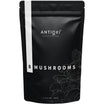
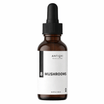
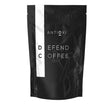
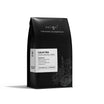
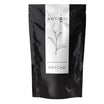
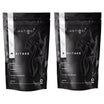


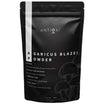
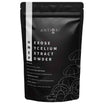
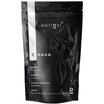
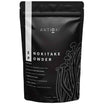
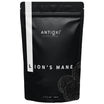
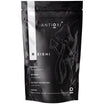
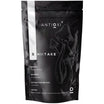
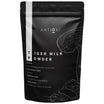
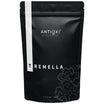
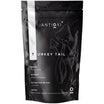



Leave a comment
All comments are moderated before being published.
This site is protected by hCaptcha and the hCaptcha Privacy Policy and Terms of Service apply.